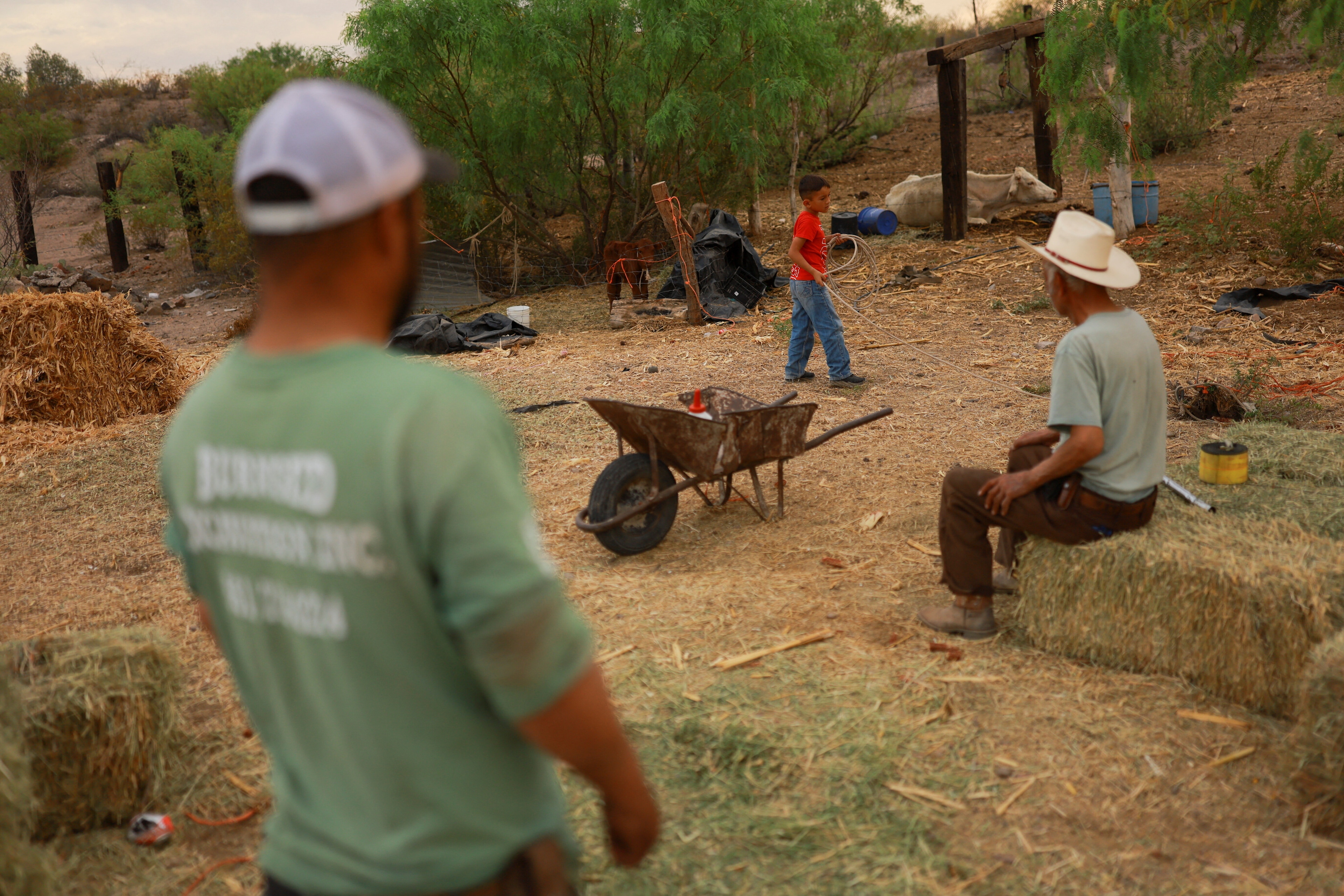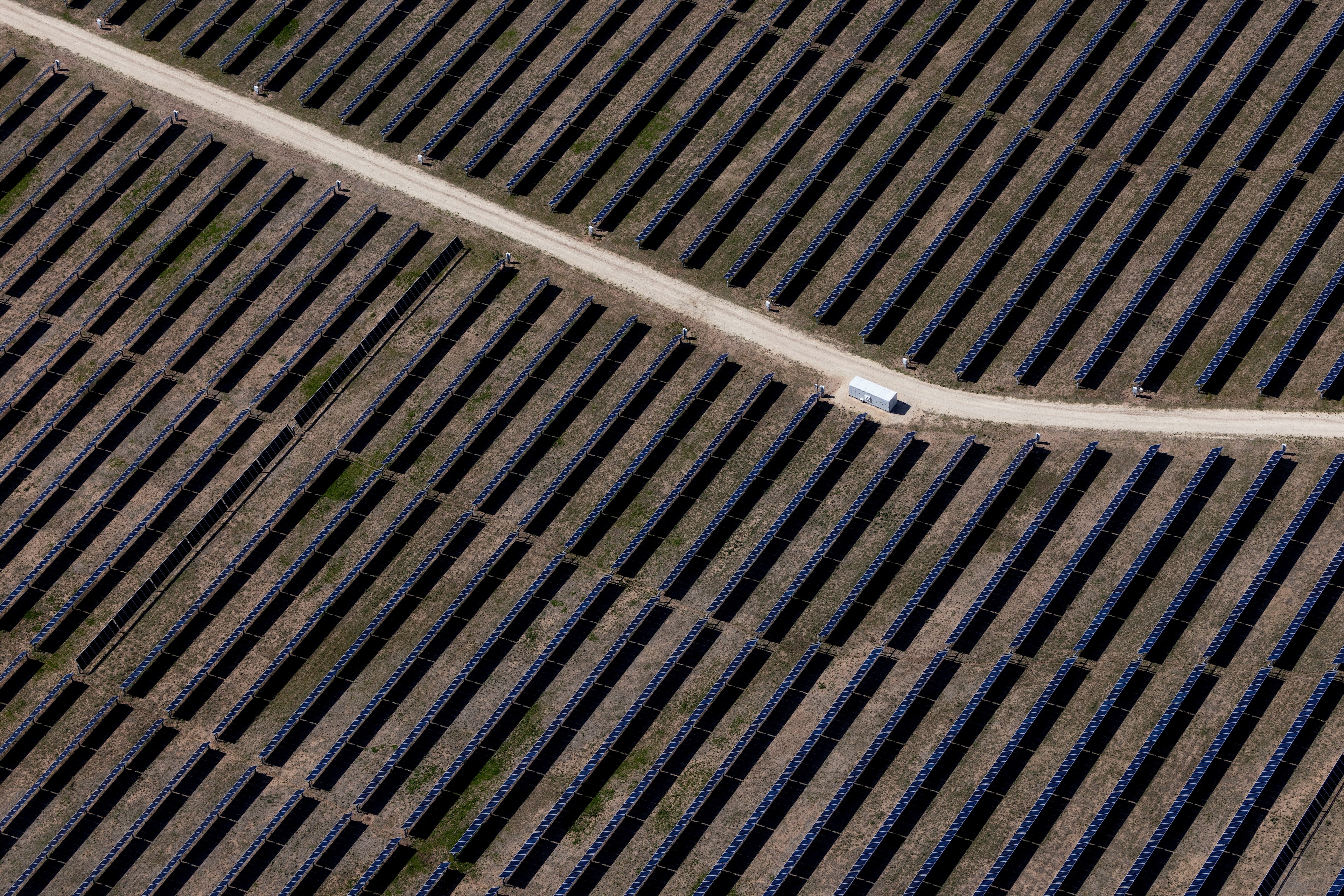World Soil Day: Restoring degraded soil is vital for food security

Good soil management can help tackle food insecurity, according to the UN on World Soil Day.
Image: Unsplash/Glen Carrie
Stay up to date:
Food Security
Listen to the article
This article was first published in June 2022 and updated in November 2022.
- The theme of this year's World Soil Day, on December 5, is 'Soils: Where food begins'.
- Soil mismanagement threatens the survival of many species on Earth, including humans, according to a United Nations body.
- But restoring degraded farmland has the potential to ease food shortages.
- Healthy soil is also critical to tackling global warming.
- The UK is rolling out a plan to pay farmers to manage soil more sustainably.
Scientists are becoming increasingly alarmed about humanity wrecking something very fundamental to all of us: the soil under our feet. Why? Because up to 40% of the land on Earth is now degraded, worsening the effects of climate change and causing hunger and poverty.
Land becomes degraded when poor farming practices lead to soil erosion, declining crop yields and a loss of biodiversity. This is contributing to global food insecurity, at a time when the war in Ukraine has led to surging food, fertilizer and energy prices.
Three billion people cannot afford a healthy diet, according to the United Nations (UN) Secretary-General Antonio Guterres.
“The number of people affected by hunger has more than doubled in the past three years," he said in October. “Almost a million people are living in famine conditions, with starvation and death a daily reality.”
World Soil Day
December 5 marks the UN Food and Agriculture Organization's World Soil Day, and the theme this year is 'Soils: where food begins', which aims to "raise awareness of the importance of maintaining healthy ecosystems and human wellbeing by addressing the growing challenges in soil management, increasing soil awareness and encouraging societies to improve soil health".
Accept our marketing cookies to access this content.
These cookies are currently disabled in your browser.
Chronic land degradation directly affects half the world’s population, according to the UN Convention to Combat Desertification (UNCCD). And the UNCCD predicts that if we carry on behaving as we are now, an additional area roughly the size of South America will become degraded by 2050.
“Conserving, restoring and using our land resources sustainably is a global imperative, one that requires action on a crisis footing,” the UNCCD’s Global Land Outlook 2 report warns. “Business as usual is not a viable pathway for our continued survival and prosperity.”
The report suggests hundreds of ways that governments can improve matters. It outlines three possible outcomes depending on whether we do nothing, embark on widespread soil restoration projects or go all out to protect and restore land across the planet.
“Modern agriculture has altered the face of the planet more than any other human activity,” UNCCD Executive Secretary Ibrahim Thiaw says. “We need to urgently rethink our global food systems, which are responsible for 80% of deforestation, 70% of freshwater use, and the single greatest cause of terrestrial biodiversity loss.”
In some cases, restoring soil will mean farmers can grow more food. But it can also help in the fight to control climate change by reducing deforestation. If more productive land is brought back to life, there should be less pressure on farmers to clear forests to make way for new croplands and pastures.
What is the World Economic Forum doing to help ensure global food security?
Better soils, better climate
Healthy soils and the plants that grow in them also store carbon, helping to counter global warming. When farmers abandon an area of degraded land, nature takes over, and as the land gradually recovers it removes carbon dioxide from the atmosphere.

It’s a very slow process, but there are ways farmers might be able to speed it up, such as using soil for a more diverse range of plants, or spreading an additive called biochar. Biochar is a charcoal-like substance produced when organic matter is burnt at high temperatures in an oxygen-deprived environment. When it is added to soil, it has the potential to improve carbon storage and make the land more fertile.
Getting farmers to switch to techniques that might restore soil is a huge challenge, but it could pay dividends. A World Economic Forum report shows that if the EU’s farmers receive support to take climate-smart actions, the bloc could cut its agricultural greenhouse gas emissions by an estimated 6%, restore soil health to more than 14% of its farmland and boost farmers’ incomes.
Paying farmers to raise soil standards
The UK is encouraging farmers to improve soil quality as part of reforms to agricultural policy following Brexit. Much of the country’s soil has deteriorated as a result of intensive farming methods, including mechanization, ploughing up hedgerows and the increased use of synthetic fertilizers and pesticides.
From 2024, the UK’s farmers will be paid if the soil on their land reaches higher standards. However, the complexity of measuring soil quality, and the length of time it takes to improve it, leads some to argue that it would be more effective to reward better farming practices, rather than pay for results.
Ways to solve the planet’s soil crisis are being developed, but getting the right incentives for farmers in place will be just the start of a long journey. Theresa Lieb, a Food Systems Analyst with GreenBiz Group, says she felt a “profound sadness” after visiting the US state of Minnesota to investigate the take-up of regenerative farming. Although Lieb met a handful of farmers working sustainably, conventional farming still has a strong hold in the area. “The overall landscape I observed during many hours behind the wheel is desolate. In an hour or more of driving I could count the number of fields using regenerative agriculture practices on one hand.”
Accept our marketing cookies to access this content.
These cookies are currently disabled in your browser.
Don't miss any update on this topic
Create a free account and access your personalized content collection with our latest publications and analyses.
License and Republishing
World Economic Forum articles may be republished in accordance with the Creative Commons Attribution-NonCommercial-NoDerivatives 4.0 International Public License, and in accordance with our Terms of Use.
The views expressed in this article are those of the author alone and not the World Economic Forum.
Related topics:
Forum Stories newsletter
Bringing you weekly curated insights and analysis on the global issues that matter.
More on Food and WaterSee all
Jose Ignacio Galindo and Nicolas Wertheimer
July 24, 2025
Arunabha Ghosh and Jane Nelson
July 22, 2025
Tom Crowfoot
July 8, 2025
Duncan Wood
July 8, 2025





